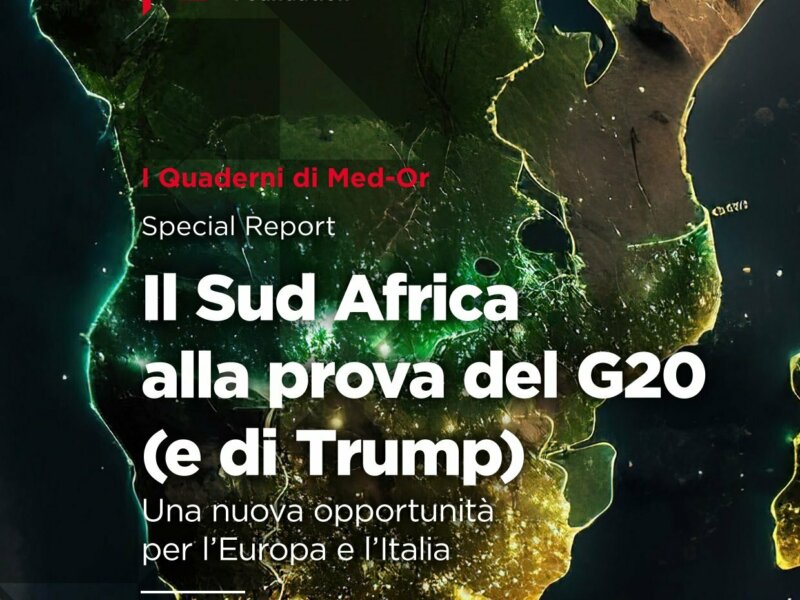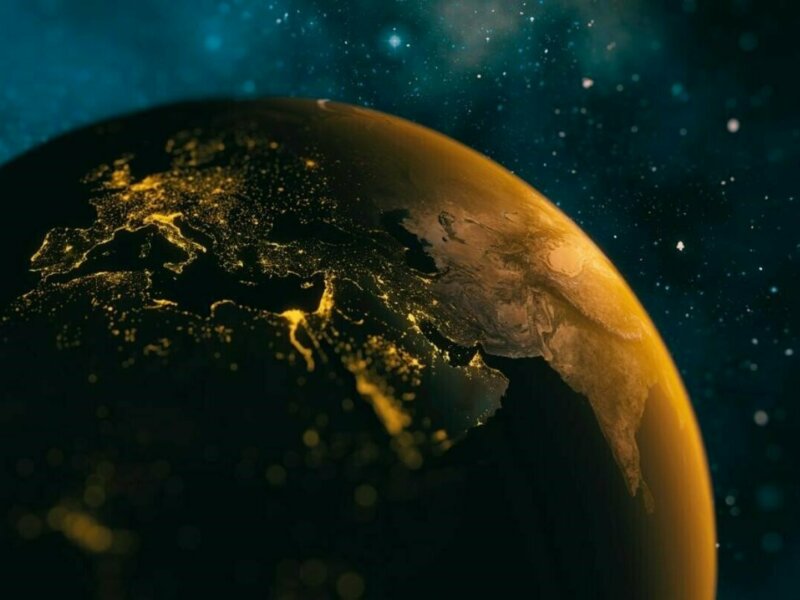Covid and Africa: three lessons that the West should learn quickly
The Covid pandemic in Africa is producing serious consequences. The continent not only needs help in the solution of the health crisis, but a paradigm shift in international relations.

There are three main lessons that policymakers and practitioners in Europe and the US should learn about Africa, the Covid pandemic, and above all its aftermath: 1) Africa is important but mistreated; 2) Africa is changing; 3) Old strategies will hardly work in the future.
Before to analyse in-depth these lessons, let’s start from the hard facts: up to date there are not completely reliable data on the Covid pandemic in Africa. Almost two years after the beginning of the pandemic in China and the adoption of the first containment measures across the planet it is still impossible to track the exact numbers of infected in the continent and by consequence the spread of the virus itself. By mid-October, the number of infections in Africa from the beginning of the outbreak was estimated to be 59 million, but only 8.5 million cases were officially tracked and reported so far. World Health Organization has recently expressed its concerns on the issue of tracking Covid’s spread in Africa assessing how six on seven infections still go undetected. To make things worse, the vaccine rollout is slow, and the continent has the lowest vaccination rate on the planet, with only five countries on track to meet the 40% vaccinated target set by the WHO by the end of this year.
Despite this concerning news, Covid also represents a game changer in African geopolitics. For the aftermath of the pandemic, it is important to understand two main things about the future of the continent and its relations with the US and Europe: a) African nations have learned some hard lessons about their current partnerships with the West and they want to change them, even radically; b) to put these relationships back on track, it is important to abandon simplistic or ethnocentric views. Put succinctly, beyond the evident humanitarian and ethical issues characterizing the vaccine rollout in Africa, it is important to remind how, just like elsewhere, Covid is reshaping the continent’s geopolitics. More specifically, Covid represents another step in the general path undertaken by African leaderships and populations to move forward the post-colonial era toward a new one characterised by more independence.
Losing Africa
Since the earliest stages of the pandemic, it was evident how vaccines were another field of the great powers competition and Africa was the most evident battleground of this.
China and Russia in fact, have easily gained the upper hand in this competition combining remarkable vaccines supply and long-term investments. Carnegie Endowment has recently tracked the vaccines production on the continent and according to the data provided 8 on 12 initiatives on this issue are lead by China or Russia. Vaccines deals do not materialise by fortune, and the predominance of Sino-Russian initiatives is a sign of how Moscow and Beijing were quicker and more resolute in supporting Africa against Covid. Last July, while Europe and the US were focused on their own vaccination campaigns, Egypt started the mass-scale production of Sinovac vaccines. In December 2020, before vaccines rollout started in the EU, Morocco and China had already negotiated a deal to produce the Sinopharm’s CoronaVac in the plant of Sothema. Sinopharm has also recently announced to be in negotiations with South Africa’s government for the opening of a new facility for the production anti-covid immunogen.
Even Russia’s initiatives were quicker and more ambitious than the Western ones. In February 2021 Moscow made its first 300 million doses bid to the African Union despite the scepticism on SputnikV efficacy among the AU members. Russian vaccines are up to date produced in Algeria, Egypt, and Morocco while emergency authorizations for SputnikV were provided in Mali, Nigeria, and Ghana.
Things are completely different for what concerns US and EU vaccine initiatives. Only in October 2021, and after a remarkable amount of political pressure, Moderna announced its decision to build two vaccine plants in South Africa and Kenya that will likely start to produce the first doses around mid-2022. Pfizer BioNTech has announced the opening of a new vaccines production site in Cape Town with production scheduled to start in 2022. Vaccine donations to African countries were provided by the US and the EU and it was one of the topics discussed during the last Rome G-20 meeting. Goodwill behind these initiatives is evident, but if compared with the Chinese and Russian strategies, characterised by the building of structures that will remain on the continent even in the aftermath of the pandemic, it is not clear what are the American and European plans for the long-term. Put succinctly, it seems that the Western-African partnership against Covid might be the classic example of “too little, too late”.
Slowness in providing support to African partners has damaged the credibility of the EU and the US among African leaders as well as influenced the relationship between the West and the continent in other fields. During the last United Nations General Assembly basically every African leader was critical of vaccines inequality toward their Western partners. This criticism was echoed by African societies lato sensu, and above all by the doctors. In an historical period marked by criticism toward European and American military presence in regions like the Sahel and the Horn of Africa, the lack of cooperation on the pandemic reinforces the feeling of dissatisfaction toward the West also thanks to disinformation campaigns concerning vaccines which are increasingly spreading across the continent. Moreover, the oversighting of vaccination rollout and health cooperation with Africa makes little sense also from a strictly security perspective. In fact, on the one hand Covid spread in the continent increases the risk of the birth of new variants, even vaccine-resistant ones, on the other health cooperation paves the way for more structured partnerships in other sectors which increase the influence of EU and US competitors. The case of Mali is explicative in this sense. Russia was among the first countries to offer vaccine doses to Bamako and now Moscow is close to sign a deal for sending the Wagner Group mercenaries in the country and establish more serious cooperation on security issues seriously undermining France influence in the country.
In conclusion, vaccines geopolitics in the continent shows how in comparison to the past, Africa is now willing to look for alternative partners, and above all able to find them with little or no difficulties.
In need but not forever
The Covid pandemic, as the preceding Ebola and Zika outbreaks, has surely highlighted the lack of medical infrastructures and equipment by African nations and by consequence one might be tempted to adopt old frameworks to make sense of this situation following a purely humanitarian approach. On the one hand it is true that the Africa is still a continent in need, but on the other, ambitions and attitudes of leaders and the populations in the continent are radically changing.
In the aftermath of the outbreak a growing part of the population started to ask for new ways to confront health emergencies in the future, and above all to provide to Africa the necessary means to face these challenges. In this context, some initiatives are symptomatic of this new attitude aimed at quitting the “state of need” which has characterised Africa and its perception for decades. In Kenya for instance, the Kenya Medical Research Study (KMRS) is now leading the studies for prevention of new pathogens and outbreaks that might originate from spillover processes as likely has happened with Covid. After the poor support provided by the European Union and the US to the vaccination campaign, African Union members are now preparing to empower the network of the AU’s Africa Centres for Disease Control and Prevention to boost their financial and medical capabilities. In this context, a particular attention is devolved to the training of doctors and nurses and consequently by a growing demand of highly specialised education. The spread of the pandemic in Africa has also highlighted the call for reviewing global health management. In May 2021, African medical researchers across the world published an open letter in Nature where they asked to funders of global research projects on infectious diseases to invest in African research centres instead of providing finished products (be them vaccines, or drugs in general) as a further sign of how the continent is looking for empowering its own solutions to future health crisis rather than asking for humanitarian assistance. Finally, in Cape Town, young scientists are now trying to reverse engineer the Moderna Covid vaccine while in Nigeria the start-up Field Intelligence is now leading the digitalisation of the country’s pharmaceutical supply chain, both projects which demonstrate furtherly the will to revolutionise African approach to public health businesses and issues.
No more “development”: training and know how exchange for long-term relationships
Since Africa is changing and the pandemic is accelerating such evolutions how the West should deal with them? In the short term, Covid will increase the demand for two specific goods by African countries: vaccines and respirators. The new vaccines supply by the United States, that will send 17 million doses in forthcoming months, as well as the new buying of 110 million doses of Moderna by the African Union are two steps forward in this sense, but these donations are not something on which the long-term relationships with Africa can be built.
In fact, Covid has provided further proofs of how long-term future Africa-EU relations must be built on training and know-how exchange rather than supplying finished products. Put succinctly, African countries are now interested in investments able to generate long-term growth and systemic innovation rather than just “solve” crisis. The days of the classic “top-down” humanitarian assistance are not over but they have reached their nadir, and the way in which relationships with Africa must be structured in the future is increasingly reviewed critically. This tendency was already in the making in the past decades, but the pandemic has evidently accelerated this dynamic. The future of the EU-Africa trade and cultural relationships should be focused on training of high-skilled workers and/or know how exchange. In this context, US and the EU can replicate the same protocols which have characterised the cooperation on military and security issues in the past. Put in simple terms, just as we have trained and exchanged knowledge with local police and army officials it is now time to train and exchange knowledge with doctors, researchers, and nurses in the continent. Moreover, it is important to understand how know-how exchange must be expanded also in other sectors such as the financial technology and digital innovation.
According to the data provided by the last Afrobarometer poll the American and European development model is still considered as the best one by most of the population in the continent, but positive views on China as both trade partner and development model are rising, with now six on ten Africans having positive feelings toward Beijing’s presence in their countries. This perception is likely to change in the future thanks also China’s efforts in supporting African efforts to tackle the pandemic, and if the US and the EU will not be ready to get more involved in supporting the continent and in providing the training and the knowledge that leaders and civil societies are asking for, they should be ready to lose Africa and accepting the negative outcomes related to this in terms of instability and economic losses.
This will be, arguably, the main geopolitical heritage from Covid in Africa. The pandemic is not just changing the relationship between the continent and the West, it is a turning point on the nature of these partnerships. Old approaches are not working anymore, and new ways must be implemented.



